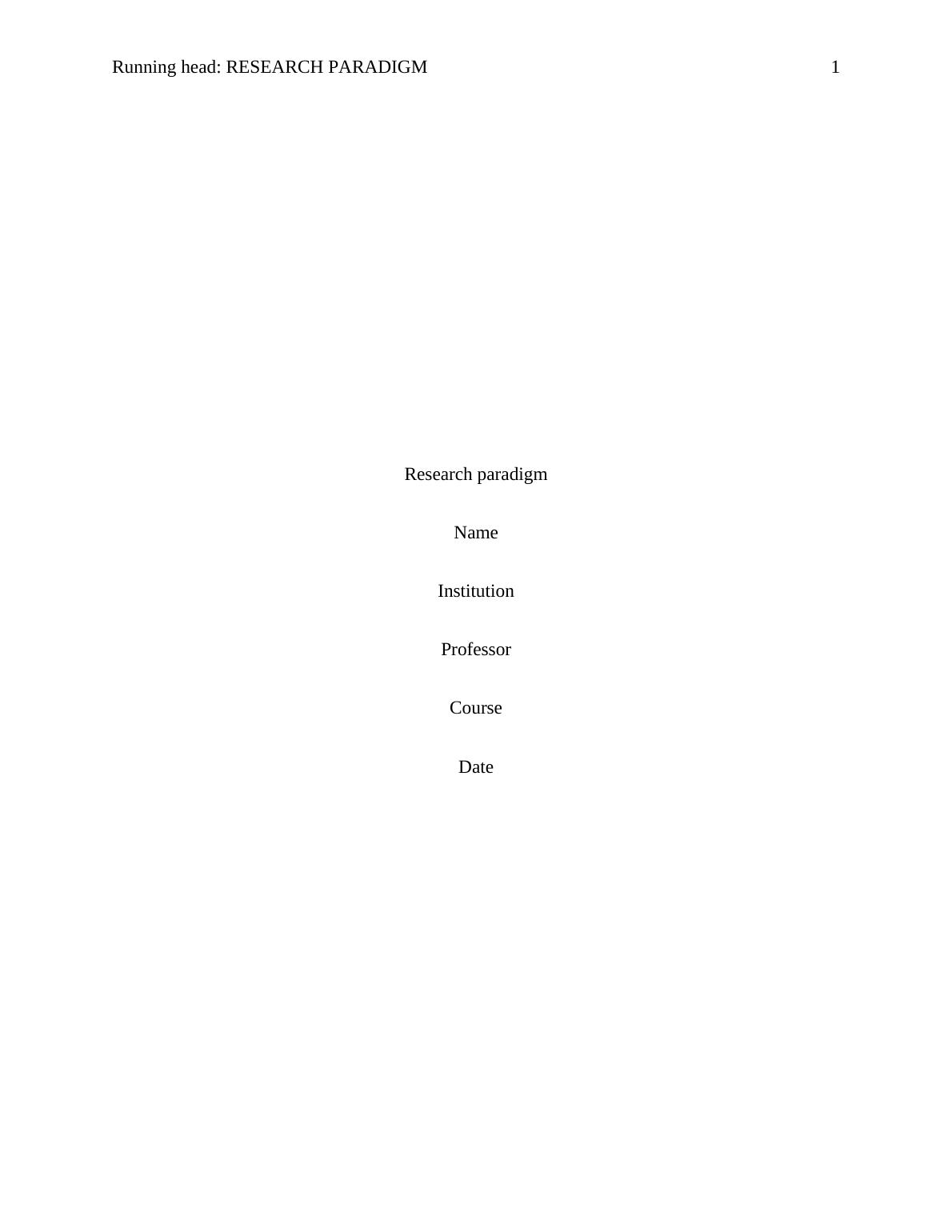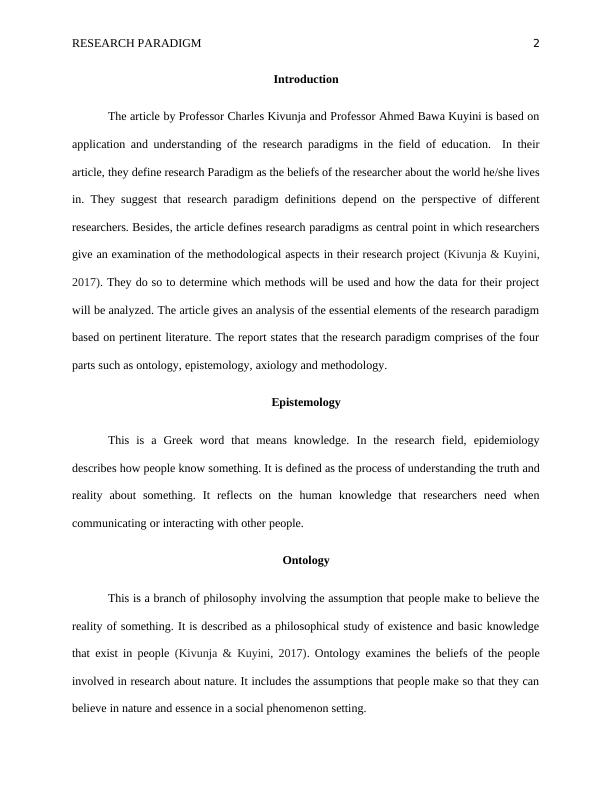Research Paradigm Article 2022
The paper aims to explain the concept of research paradigms and provide guidance on how researchers can incorporate them into their research proposals.
5 Pages926 Words17 Views
Added on 2022-10-18
Research Paradigm Article 2022
The paper aims to explain the concept of research paradigms and provide guidance on how researchers can incorporate them into their research proposals.
Added on 2022-10-18
ShareRelated Documents
End of preview
Want to access all the pages? Upload your documents or become a member.
Business Research Methods Assignment
|12
|4008
|104
Selecting a Research Approach: Paradigm, Methodology and Methods
|22
|8165
|316
Understanding and Applying Research Paradigms in Educational Contexts
|16
|13307
|244
Increasing Management knowledge
|11
|3513
|14
Research philosophy Assignment 2022
|11
|2469
|25
Research Methods for Customer Loyalty and Service Quality in Hotel Industry
|15
|3387
|99


